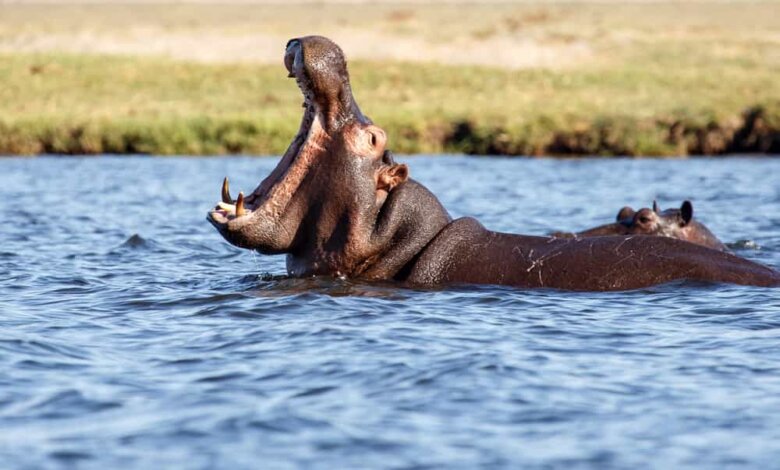A Study in Mozambique Finds that Hippos can Recognise Each Others Voices

Hippos in the wild make a lot of noise, and their cries may be heard for miles over lakes and rivers. The precise function of the loud “wheeze honks” made by the animals has remained a mystery until now.
Scientists researching hippos in an African nature reserve think the characteristic honks help the huge creatures distinguish between friends and foes. The researchers believe that the animals can recognise other hippos based on their “voices.”
Prof Nicolas Mathevon of the University of Saint-Etienne in France, the study’s head, has investigated the sounds made by creatures all over the world, from leopard seals to hyenas.
Hippos have a diverse vocal repertoire, including grunts, bellows, squeals, and “wheeze honks” according to him, but little is known about how they communicate socially.
“In their call, there is information about the identity of the individual – so they have ‘voices’ – and they are able to recognise each other by their voices,” he said. “This recognition ability supports the social relationships between individuals.”
The French researchers recorded the sounds of hippos residing in the Maputo Special Reserve in Mozambique to learn more about hippo communication. According to the study, the wheeze-honk is the most common and loudest hippo call, travelling up to 1km.
The biologists captured hippos’ wheeze-honks and broadcast them from the shores of lakes to see how other hippos reacted. They discovered that hippos could distinguish between friends, neighbours, and strangers based on their voices.
According to the researchers, in addition to distinguishing between friend and foe (or, at least, unfamiliar hippos), the animals can probably discriminate between individuals – though they couldn’t be certain.
Despite the fact that they appeared to be relaxing on the lake, the enormous beasts were definitely paying attention to their surroundings and responding quickly to the broadcasts.
Unknown hippos elicited more aggressive responses from the animals, including faster, louder, and more frequent calls, as well as territorial dung spraying.
Wild hippos are sometimes relocated from one site to another to maintain local populations healthy, so the knowledge could help with conservation, he said. He noted that the discovery may motivate conservationists to prepare recordings to assist local hippos to become accustomed to the new hippos’ voice before they arrive.
Hippos are not endangered in the wild yet, but their numbers are rapidly dwindling. Hippos cause hundreds of human deaths each year, making them a source of animal-human conflict.
Highlighting that, Prof. Mathevon believes that learning more about the biology and behaviour of hippos is critical in preventing these human-animal conflicts.
The findings were reported in the journal Current Biology yesterday.
Source: BBC
Abeeb Lekan Sodiq is a Managing Editor & Writer at theafricandream.net. He’s as well a Graphics Designer and also known as Arakunrin Lekan.





